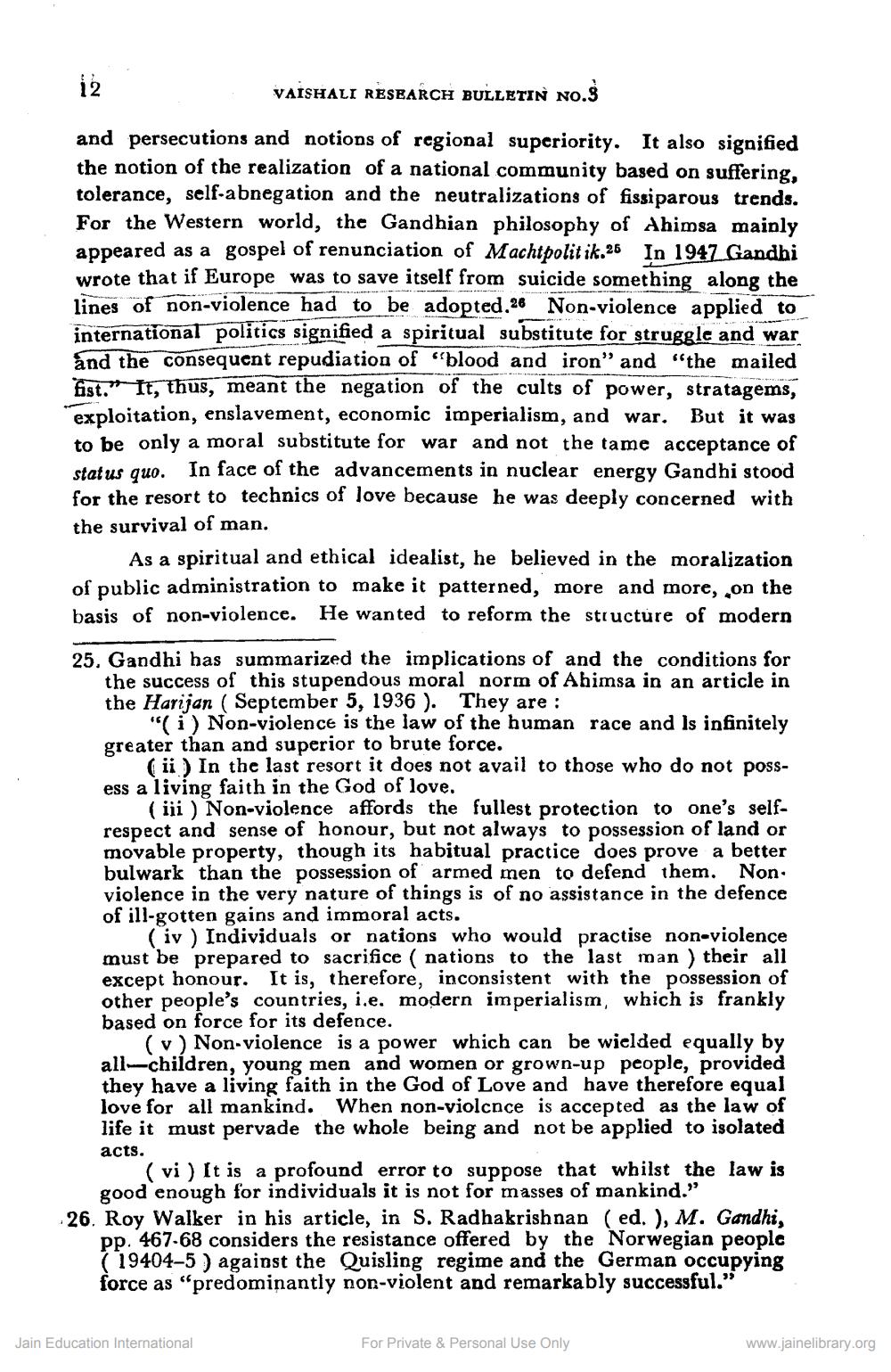________________
12
VAISHALI RESEARCH BULLETIN NO.3
and persecutions and notions of regional superiority. It also signified the notion of the realization of a national community based on suffering, tolerance, self-abnegation and the neutralizations of fissiparous trends. For the Western world, the Gandhian philosophy of Ahimsa mainly appeared as a gospel of renunciation of Machtpolitik.25 In 1947 Gandhi wrote that if Europe was to save itself from suicide something along the lines of non-violence had to be adopted.26 Non-violence applied to international politics signified a spiritual substitute for struggle and war and the consequent repudiation of "blood and iron" and "the mailed fist." It, thus, meant the negation of the cults of power, stratagems, exploitation, enslavement, economic imperialism, and war. But it was to be only a moral substitute for war and not the tame acceptance of status quo. In face of the advancements in nuclear energy Gandhi stood for the resort to technics of love because he was deeply concerned with the survival of man.
As a spiritual and ethical idealist, he believed in the moralization of public administration to make it patterned, more and more, on the basis of non-violence. He wanted to reform the structure of modern
25. Gandhi has summarized the implications of and the conditions for the success of this stupendous moral norm of Ahimsa in an article in the Harijan (September 5, 1936). They are:
"(i) Non-violence is the law of the human race and Is infinitely greater than and superior to brute force.
(ii) In the last resort it does not avail to those who do not possess a living faith in the God of love.
(iii) Non-violence affords the fullest protection to one's selfrespect and sense of honour, but not always to possession of land or movable property, though its habitual practice does prove a better bulwark than the possession of armed men to defend them. Non. violence in the very nature of things is of no assistance in the defence of ill-gotten gains and immoral acts.
(iv) Individuals or nations who would practise non-violence must be prepared to sacrifice (nations to the last man) their all except honour. It is, therefore, inconsistent with the possession of other people's countries, i.e. modern imperialism, which is frankly based on force for its defence.
(v) Non-violence is a power which can be wielded equally by all-children, young men and women or grown-up people, provided they have a living faith in the God of Love and have therefore equal love for all mankind. When non-violcnce is accepted as the law of life it must pervade the whole being and not be applied to isolated
acts.
(vi) It is a profound error to suppose that whilst the law is good enough for individuals it is not for masses of mankind." 26. Roy Walker in his article, in S. Radhakrishnan pp. 467-68 considers the resistance offered by the (19404-5) against the Quisling regime and the force as "predominantly non-violent and remarkably successful."
Jain Education International
For Private & Personal Use Only
(ed.), M. Gandhi, Norwegian people German occupying
www.jainelibrary.org




